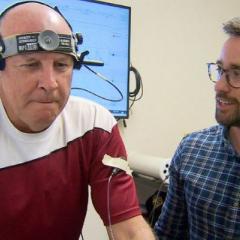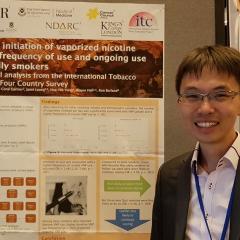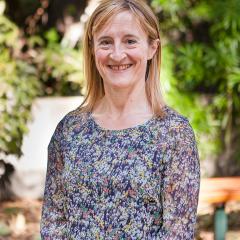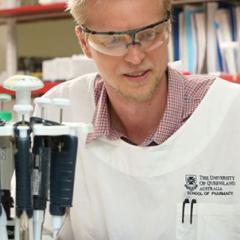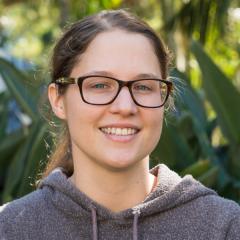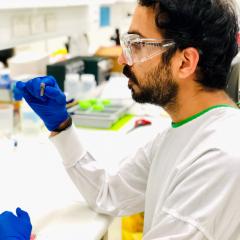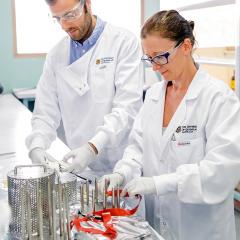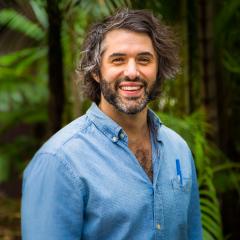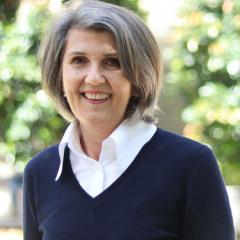Shelley Keating
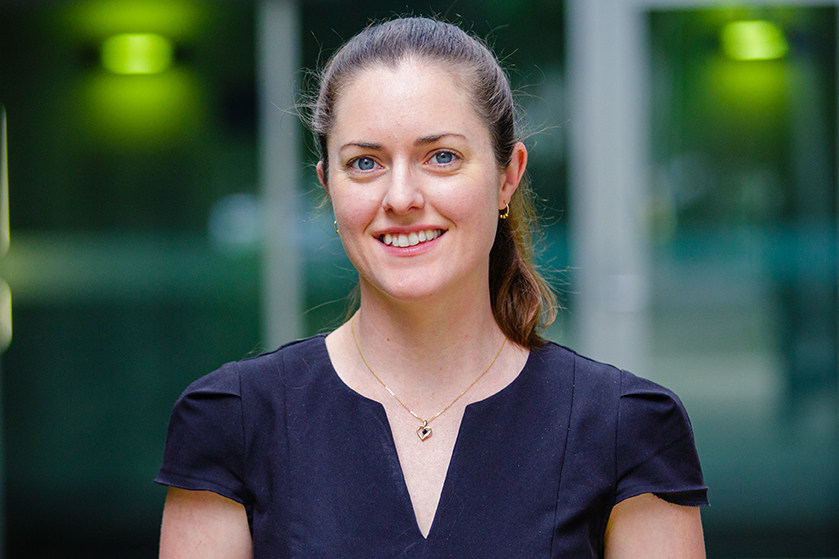 Dr Shelley Keating is an NHMRC Early Career Fellow at the UQ School of Human Movement and Nutrition Sciences. Her program of research examines the role of exercise in the management of obesity and related cardiometabolic conditions, notably non-alcoholic fatty liver disease (NAFLD) and type 2 diabetes.
Dr Shelley Keating is an NHMRC Early Career Fellow at the UQ School of Human Movement and Nutrition Sciences. Her program of research examines the role of exercise in the management of obesity and related cardiometabolic conditions, notably non-alcoholic fatty liver disease (NAFLD) and type 2 diabetes.
Current research
Is high intensity exercise effective in improving insulin resistance, fitness and other cardiovascular risk factors in patients with non-alcoholic steatohepatitis? Nonalcoholic steatihepatitis (NASH) is a progressive form of NAFLD that is characterised by increased fat and inflammation in the liver. A key feature of NASH is insulin resistance and NASH is strongly linked with type 2 diabetes and cardiovascular disease as well as more severe liver disease such as cirrhosis and liver cancer. With the support of Diabetes Australia and Exercise and Sports Science Australia, Dr Keating is investigating whether high intensity interval training (HIIT) is both safe and effective for improving insulin resistance as well as fitness, body composition and vascular health in adults with NASH. She is also investigating whether adults with NASH can continue doing HIIT at home, without supervision as it is really important that individuals can continue on with HIIT in the long-term so that the health benefits can be sustained.
‘Stepping Up’ Care for Type 2 Diabetes. This multi-site study is a collaboration between UQ and the University of Sydney that will commence in November 2019. It will examine personalised exercise strategies for the management of cardiometabolic risk in adults with NAFLD and type 2 diabetes. The purpose is to determine the efficacy of an individualised approach to exercise prescription, based on current exercise recommendations implemented in a way that ensures most individuals with type 2 diabetes and NAFLD will gain metabolic benefit.
Can simple blood and anthropometric markers be used to detect change in liver fat measured by proton magnetic resonance spectroscopy? Dr Keating is consolidating existing collaborations by leading multi-site research in exercise for obesity/NAFLD with UQ and University of Sydney researchers. She recently led their first published joint work examining the utility of biomarkers for detecting change in liver fat that can be used by allied health professionals in clinical practice, where there is no easy access to sophisticated equipment. She presented this work in the ‘best paper’ section at the International Conference on Fatty Liver, demonstrating international recognition of the work.
HIIT vs MICT- what is the best ‘dose’ for body fat reduction? This recent review found that neither interval training (HIIT or SIT) nor moderate intensity continuous training (MICT) is ‘superior’ for body fat loss - they both provided similar benefits - especially when the volume of training was similar, i.e. the energy expenditure from each exercise bout was similar.
Career highlights
- Recipient of an NHMRC Early Career Fellowship (Peter Doherty Biomedical Fellowship, 2017-2021).
- $655,667 in competitive external grant and fellowship funding ($375,113 as CIA/principal investigator in Category 1 schemes) and $286,424 in equipment grants.
- Awarded the 2018 Faculty of Health and Behavioural Sciences Early Career Research Excellence Award and the 2017 Early Career Researcher Award, UQ School of Human Movement and Nutrition Sciences.
- Becoming a mother in July 2018 and navigating the balance between research and motherhood: "I have been recently supported by the UQ Amplify Women's Academic Research Equity Scheme (2019-2020) and recipient of a RDC Global Mother of Science Scholarship (2019). These are generous awards/scholarships that support women in research returning from a period of maternity leave."

